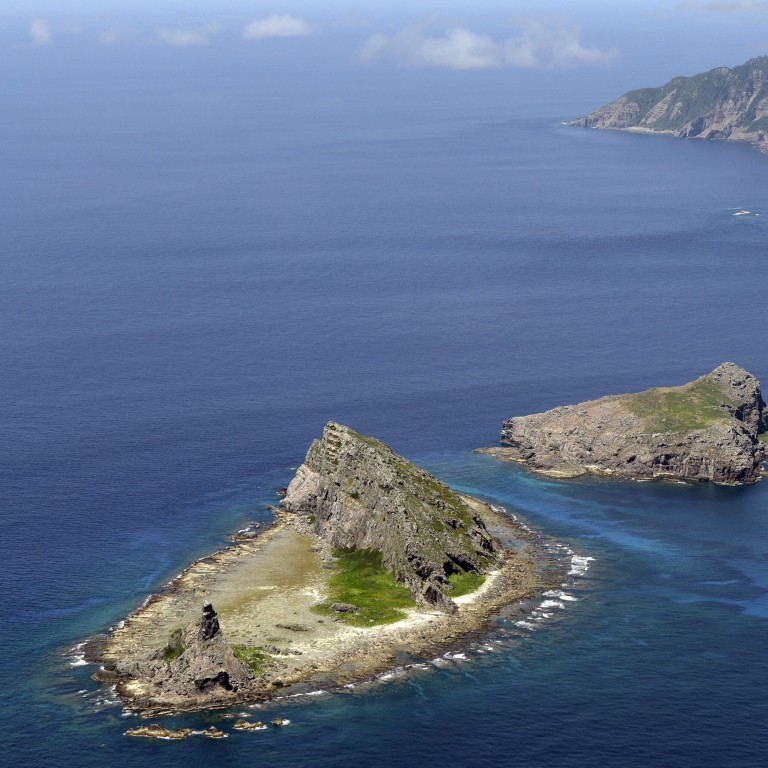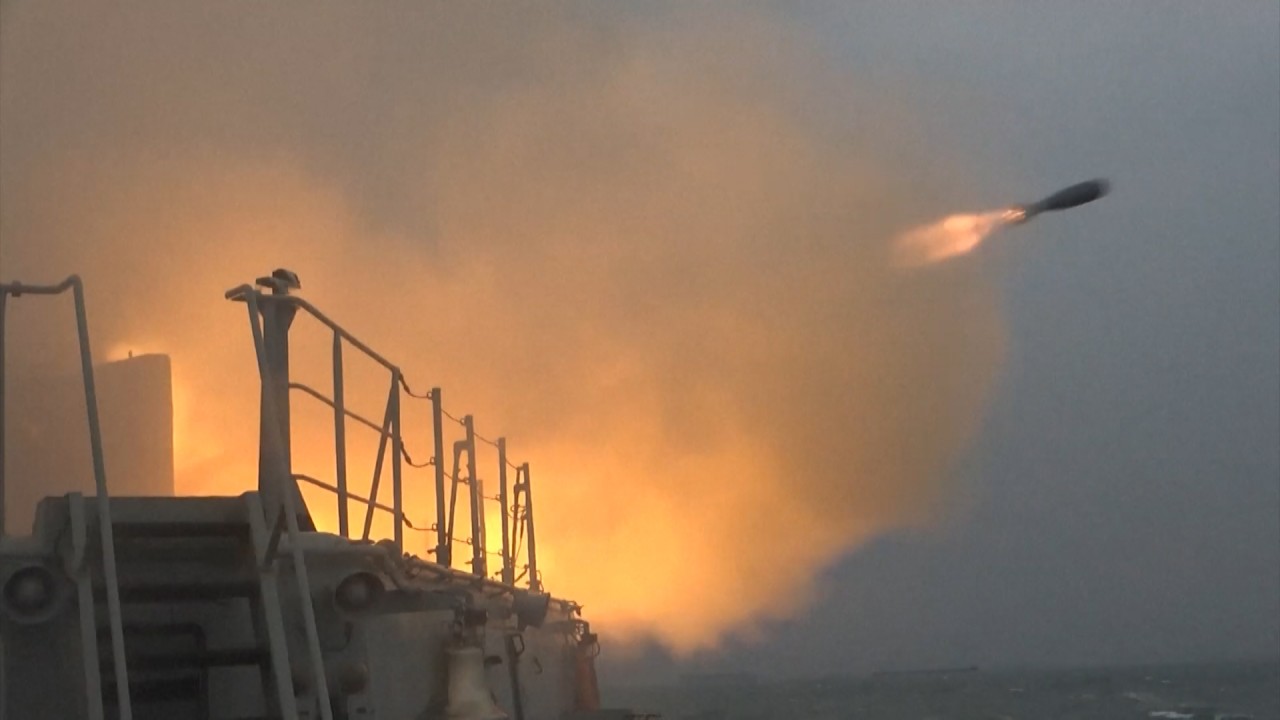
Japan considers sending in troops to help meet China’s Diaoyu challenge
- The Chinese coastguard has increased its activity near the Japanese-controlled islands, raising alarm in Tokyo
- Observers say tensions could be a test for the Biden administration
The China Coast Guard has expanded its presence in the contested waters near the Japanese-controlled Diaoyu Islands, known in Japan as the Senkakus.
The increased activity follows the implementation last month of a new law that allows China’s quasi-military force to use weapons against foreign ships that Beijing sees as illegally entering its waters.
The frequency of Chinese coastguard vessels entering the waters has risen from twice a month last year to twice a week in February, according to the Japan Coast Guard.
Japan could fire at foreign official vessels aiming to enter waters near Diaoyu Islands
It also raises the prospect of a potential conflict and could emerge as a test for the Biden administration’s security commitment to one of Washington’s most important allies in the region.
A Japanese official said Tokyo was alarmed by the Chinese activities and was considering its response.
“Under our domestic law, the self-defence forces can use weapons as law enforcement against unlawful activities on behalf of our coastguard if the Chinese coastguard enters our territorial waters including surrounding the Senkaku Islands without permission,” the official said on condition of anonymity.
While stressing that Japan did not intend to escalate the situation, the official said Tokyo would try to increase pressure on China on the diplomatic front, such as seeking support from countries like Britain and Canada.
Tokyo raised its concerns about China’s new law in February during a “2+2” meeting between Japanese and British foreign and defence ministers.
In response to Japanese complaints about the incursions, the Chinese foreign ministry said on Friday that the Chinese coastguard patrols near the Diaoyu Islands were justified and in line with its sovereignty claims. It urged Tokyo to refrain from “complicating the situation”.
“There are functioning and effective communication channels between the Chinese and Japanese sides,” the ministry said.
“We hope the Japanese side can meet us halfway to properly manage such sensitive issues.”
Pentagon: remarks supporting Tokyo’s claim on Diaoyu Islands sovereignty ‘were an error’
In late February, two Chinese coastguard vessels repeatedly entered Japan’s territorial waters and approached a Japanese fishing boat near the islands. A Japanese patrol vessel was deployed to escort the Japanese fishing boat and warn off the Chinese ships. The Japan Coast Guard said it had also observed that two other Chinese vessels, one apparently armed with an autocannon, were cruising just outside Japan’s territorial waters.
After the incident, Japanese government officials said the Japan Coast Guard was allowed to directly shoot at foreign targets “caught in the act of committing violent crimes on their way to landing on Japanese territory”.

01:56
Diaoyu-Senkaku islands spat deepens as Japan warns China over coastguard ships in East China Sea
Defence Minister Nobuo Kishi said last week that Japan could deploy its self-defence forces if its coastguard could not handle the situation on its own, and that “coastguard-style standards” might apply to the self-defence forces in terms of firing on foreign vessels.
According to national broadcaster NHK, the Japan Maritime Self-Defence Force (MSDF) and coastguard had a joint exercise in the country’s southwestern waters on Wednesday.
The drill, designed to simulate response to attacks on an important facility by foreign vessels, involved a destroyer, a missile boat and two helicopters from the MSDF, as well as two coastguard patrol ships. It was the first time in eight years the MSDF has sent a destroyer to join the annual exercise.
Narushige Michishita, vice-president at the National Graduate Institute for Policy Studies, said Japan would probably not ramp up SDF deployment in the area, but it would try to strengthen the coastguard and its links with the SDF.
Beijing and Tokyo have in recent years sought to improve relations following decades of animosity over territorial and historical disputes. But public opinion in Japan has soured over the pandemic, Beijing’s aggressive posturing near the Japanese-controlled Diaoyus and its handling of anti-government protests in Hong Kong.
Observers say tensions between China and Japan could further escalate if not managed properly.
Sheila Smith, senior fellow for Japan studies at the Council on Foreign Relations, warned there was a danger of Tokyo or Beijing misreading the other’s intentions.
“To date, Chinese and Japanese ships have been careful of each other in the interest of avoiding conflict. But now, with China’s growing assertiveness, Japanese commanders on the water will now be far more sensitive to the intentions of Chinese coastguard ships,” she said.
“Chinese calculations should take [the US-Japan] alliance commitment into consideration, but it is not clear if they are. Misreading intentions again could be very dangerous.”

01:22
China’s navy conducts live-fire military drills in the East China Sea
US President Joe Biden reaffirmed that commitment to Japan in his first phone call with Japanese Prime Minister Yoshihide Suga in January, stating “the United States’ unwavering commitment to the defence of Japan under Article 5 of our security treaty, which includes the Senkaku Islands”.
Article 5 stipulates that the US is obliged to defend Japan should its territories come under attack.
And just last week, the Biden administration described Japan as among the US’ greatest strategic asset that Washington will continue to invest in.
“Mr Biden knows that [his] administration is also being tested by China now. The United States will recognise that the test is also testing the trust of its allies,” said Kotaro Tamura, a former Japanese lawmaker and adviser to former Japanese prime minister Shinzo Abe.
“The new president knows that regaining the trust of allies in Asia lost in the previous administration requires not only remarks but also actions to prove it.”

